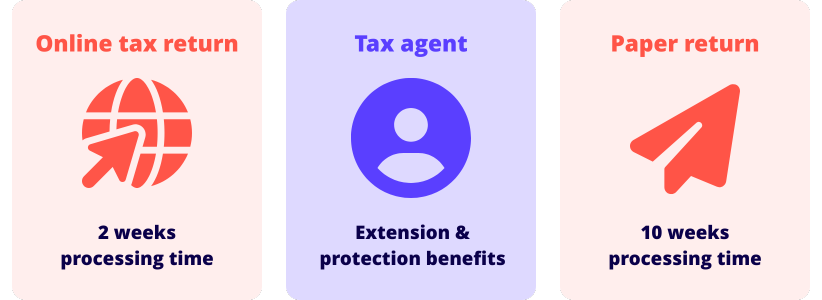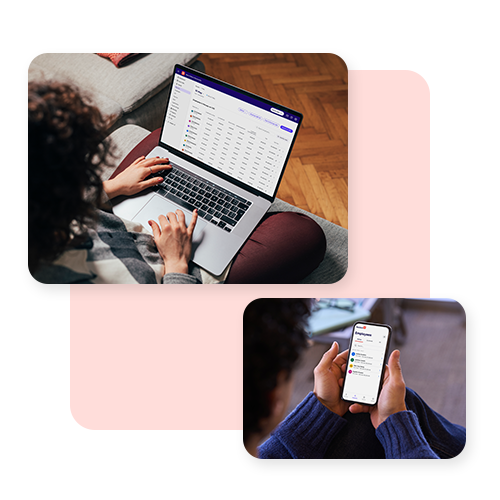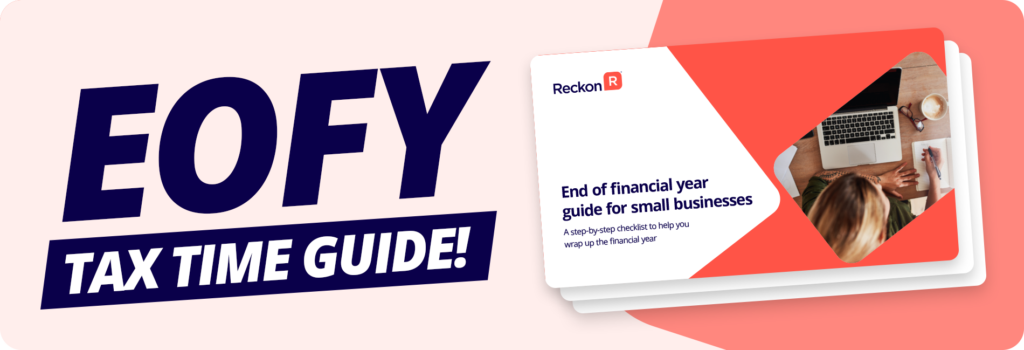Lodging your company tax return is a yearly – and very non-negotiable – job for every Australian business. How and when you lodge with the Australian Taxation Office (ATO) depends on your business structure – sole trader, partnership, company, trust, etc. – and whether you self-prepare or use a registered tax agent. Here are all the things you need to know so you can lodge on time and with zero headaches.
Before you start: Get your house in order
Good records make for the most hassle-free lodgements. Reconcile your bank accounts, sales and purchases, and make sure your BAS numbers match your books. If you run payroll on your own, finalise things like Single Touch Payroll (STP) for the year so your staff can get their income statements in myGov.
You’ll also need to get all your tax invoices for deductions, a depreciation schedule, stocktake results (if relevant), bank-interest summaries, loan statements, and private health and superannuation details. Plus, you’ll need to keep these records for five years in case of any ATO issues with your company tax returns.
How to lodge a company tax return in 3 different ways

- Online self-lodgement: Sole traders lodge an individual return via myTax in myGov (including the business and professional items schedule for individuals). Partnerships, companies and trusts can use Standard Business Reporting (SBR)-enabled platforms to lodge their entity returns online.
- Through registered tax agents: Agents use the ATO’s Lodgment Program, which lets you do everything at later due dates than self-lodgers. To take advantage of those extensions, you’ll need to hire an agent by 31 October who can handle your tax liability, taxable income, profit and loss statements, business expenses, sales revenue and so much more.
- Paper return: This is actually still available for all structures, but it’s much slower and easier to make mistakes. Online lodgement is very strongly recommended.
Top tip: ASIC’s annual review for companies is separate from your ATO company tax return – both must be handled.
Sole trader (sole proprietorship)
How to lodge
You file one individual tax return reporting both your personal and your business income. Add the business and professional items schedule to detail all your income, business expenses, adjustments, and other relevant information. You can claim deductions for business-related costs (home-office, motor vehicle, subscriptions, tools, insurance and more – keep evidence) for the financial year. And if you’re registered for GST, your BAS obligations will be separate from the return.
When to lodge
Self-lodging small businesses and sole traders must lodge by 31 October each year. If you’re using a registered tax agent, you must be on their books by this time, and your actual due date will follow the agent’s program (which is, thankfully, always later).
Payments and instalments
If you’re in the PAYG instalments system, these pre-payments are credited against your year-end assessment. If your income has changed, you can vary the instalments to better match your cash flow.
Partnership
How to lodge
You’ll lodge a partnership tax return (electronic via SBR software through a tax agent or paper). The return shows your partnership’s net income (or loss), which is income minus allowable deductions. The partnership itself doesn’t pay income tax; instead, each partner reports their share of partnership income (and any credits) on their individual tax return and pays tax at their personal rate, with accurate financial records to back everything up.
When to lodge
If self-lodging, the partnership return is due 31 October. Using a tax agent? Your agent will advise your due date under the Lodgment Program.
Other points
Partnerships might have things like GST, PAYG withholding and STP obligations if you employ staff as well. Partners will also need to factor in their personal PAYG instalments.
Company tax returns
How to lodge
A company lodges their business tax returns via their preferred system. The company itself is a separate legal entity, so company tax on income is calculated separately from any of the directors’ personal income. Directors will still have to lodge their own individual returns for salaries and dividends.
When to lodge
Due dates for a company’s completed tax return tend to depend on its size, history and whether you use tax professionals. Most standard company returns are lodged through an agent and come due around 28 February, but your exact date might be different.
Payments and franking credits
Some companies will have to pay via PAYG instalments during the year. And if you’re paying dividends, make sure you have a franking account and issue the right statements.
Trust
How to lodge
The trustee must lodge a trust tax return. In most cases, the trust itself doesn’t pay tax. The trust return reports net trust income and how it’s distributed to beneficiaries. Beneficiaries then include their share in their individual tax return and pay tax accordingly.
When to lodge
If you’re planning to lodge it yourself, you’ll need to file by 31 October. Agent-lodged returns follow the tax agent’s timetable. Trustees will need to make valid distribution resolutions by 30 June to stream income as intended – so make sure you are prepared and get advice well before year’s end.
Be aware that some trusts (like unit trusts) and certain distributions have more reporting requirements (i.e. TFN reporting). Ask your advisor if you’re unsure.
Important dates, extensions and penalties
If you have tax payable and you’re a self-lodger, be mindful of 31 October after the end of the financial year (30 June) – it’s the anchor date for most sole traders, partnerships and trusts. Company tax requirements differ – most standard cases (via agents) fall on 28 February, but not all. Working with a registered tax agent will give you extra time.
If you miss a due date, the ATO can hit you with a failure to lodge (FTL) penalty and general interest charges on late payments. Don’t ignore it – lodge as soon as possible and, if you can’t pay in full, set up an ATO payment plan to minimise any interest and keep your record clean.
What you can claim (tax deductions)
You can generally claim expenses incurred in earning assessable income – think operating costs, professional fees, insurance, interest on business loans, repairs, subscriptions and software. You’ll want to stay on top of depreciation or instantly write off eligible assets. Also, make sure you are apportioning any private use and keep solid logbooks/records wherever possible. And if you’re registered for GST, report that GST on BAS separately from your income tax return.
Special reports you might need
Some industries have to lodge a taxable payments annual report (TPAR) – say you’re in sectors like building and construction, cleaning, couriers, IT, security, road freight, etc. If you pay contractors in these sectors, check if TPAR applies; it’s separate from your tax return and due by 28 August.
How and when you lodge comes down to your structure and whether you use an agent for your company tax returns. Sole traders have to lodge an individual return (with a business schedule), whereas partnerships and trusts lodge entity returns that distribute income to partners/beneficiaries. Some companies, however, need to lodge a separate company tax return and pay tax at the corporate rate.
In short: keep your records clean, remember the most important tax dates, lean on your platform (and tax advisor), and you’ll turn tax time from stressful to super-easy.











































